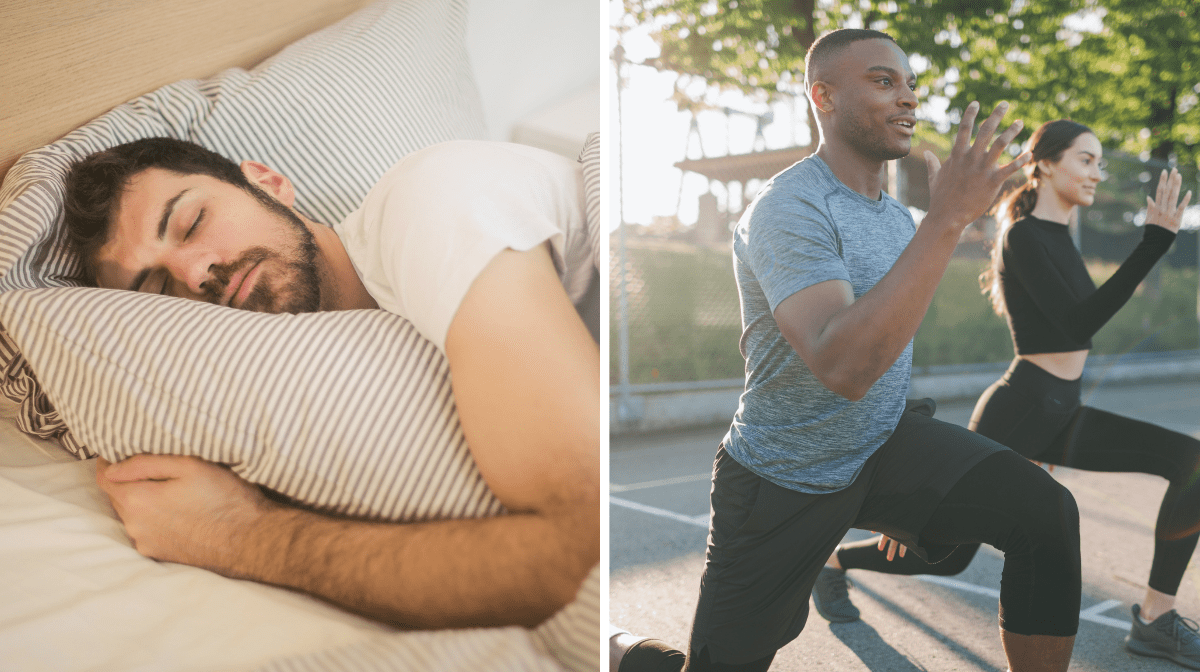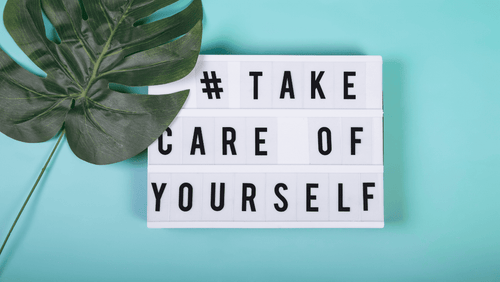
We all know how vital exercise is for virtually every aspect of health. Exercise can enhance brain activity, lower your chances of disease, and strengthen your bones and muscles, among many other benefits.
But did you know that working out can have a significant impact on how well you sleep at night, and vice versa?
How Exercise Influences Sleep
Just like working out, getting a good night's rest can greatly influence how you feel during the day and your overall well-being. Experts recommend getting 7+ hours a night. While 3/4 of Canadians are getting the recommended amount of sleep, sleep disorders are still prevalent in the general population.
30% of adults report significant sleep complaints, while insomnia and sleep-disordered breathing (SBD) both have rates of over 10% in the adult population.
One (of the many) pros of exercise is that it can be a great tool for those who have trouble sleeping. One study showed that four months of aerobic exercise training significantly improved sleep quality and reduced daytime sleepiness and depressive symptoms in those with insomnia.
Moderate aerobic exercise and resistance training were both shown to improve sleep-disordered breathing.
As you can see, exercise can make a big difference for those struggling to sleep through the night.
But the relationship between exercise and sleep isn't one-sided. Just like getting a workout in can help you sleep at night, sleeping well at night influences how likely you are to exercise during the day.
How Sleep Influences Exercise
Studies show that adults who do not sleep well are less active than those who do. And if you think about it, this makes perfect sense.
Getting a good night's sleep will give you more energy during the day, making it easier to work out. People with insomnia are less active and have lower cardiorespiratory fitness than those without insomnia. This may be because those with insomnia experience sleepiness and fatigue during the day.
Similarly, studies show that adults with sleep-disordered breathing are less likely to exercise than those without this sleep disorder. This is largely because those with SDB experience extra weight on their bodies, low energy levels, and significant fatigue.
How well you sleep on a nightly basis will affect how likely you are to work out the next day. If your sleep quality is worse, you'll be less likely to exercise.
Plus, having trouble sleeping consistently doesn't just affect your physical activity in the short-term, but can affect how likely you are to work out for years to come. Two studies show that if you experience generally bad sleep, you are less likely to be physically active for the next 2-7 years.
How Your Sleep Schedule Affects Fitness
Quality of sleep isn't the only factor that can affect your fitness level. What time you wake up can also have an impact. Studies show that those who wake up at an earlier time every day are more likely to be physically active. This likely has to do with circadian rhythms— your body's natural clock.
To learn more about circadian rhythms, and how you can use them to optimize your health, check out our article on self-care:

5 Tips for a Successful Self-Care Summer
Use these techniques to practise self-care this summer and improve your daily li...
Will Working Out At Night Worsen Your Sleep?
The consensus from experts used to be that working out at night may disturb your sleep. Researchers believed this because working out raises your body temperature, which needs to be cool to fall asleep. But recent research shows that this is not actually true and that exercising at night will not negatively impact your sleep— it can actually help you sleep. Just avoid vigorous physical activity at night and try to work out one hour or more in advance before you go to sleep.
Take Home Message
Sleep and exercise are both super important aspects of a healthy lifestyle. Both are associated with many mental and physical benefits, including increased longevity and happiness. It's important to remember that sleep and exercise can influence one another, and if you're not doing well in one area, it is easy to fall short in the other.
If you're having trouble sleeping, daily exercise is a proven way to help you sleep better at night. And sleeping better at night will give you more energy and less fatigue during the day, which may help motivate you to work out more. By finding a healthy balance between sleep and exercise, you can improve in both areas of life and feel your best.
READ THESE NEXT:

Tips for Sun Safety in the Summer
Follow these tips to reap the benefits of the sun, without incurring the damage....

Cohnan Kotarski's Six Tips on How to Stop Binge Eating
Cohnan Kotarski gives us six tips on how to stop binge eating....

Training On Holiday: Everything You Need To Know
To train or not to train ......
A Rutgers University Honors graduate, Jamie grew up on the Jersey shore and double majored in Comparative Literature and Anthropology in college. Jamie is an experienced writer in the health and wellness, biotech, and eCommerce fields. She loves writing with a purpose and has even written for the Department of Justice.
Jamie became drawn to exercise during her time in university and began to notice the physical and mental benefits of moving your body daily. Today, Jamie enjoys Pilates, light weight training, and going on long walks in nature daily.
Jamie is also passionate about eating right and prioritizing gut health and immunity. She is always trying the next innovation in health and wellness. When she’s not writing articles, Jamie enjoys reading, playing guitar, and finding dogs to play with.










